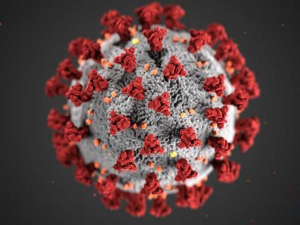State of the Dairy Nation 2024/25: DairyNZ Highlights Record Milk Production and Export Growth
DairyNZ's chief executive Campbell Parker says the 2024/25 dairy season reinforces the importance of the dairy sector to New Zealand.
 Farmers and those in the agri-sector need to have good plans in place for dealing with the ever increasing likelihood of a major community outbreak of Omicron.
Farmers and those in the agri-sector need to have good plans in place for dealing with the ever increasing likelihood of a major community outbreak of Omicron.
OPINION: Benjamin Disraeli once said, "Plan for the worst and hope for the best".
While the 19th century former British Prime Minister could never have known about Covid, his words from the 1800s are as relevant today as they were back in the day.
Farmers and those in the agri-sector need to have good plans in place for dealing with the ever increasing likelihood of a major community outbreak of Omicron.
Already, a pan-primary sector group - which includes Beef+Lamb NZ (BLNZ), DairyNZ, MPI, the deer and pork industries and Federated Farmers - has been preparing advice for farmers to deal with this contingency.
All of these organisations have advice on their respective websites aimed at making it easy for those in the primary sector to plan for such an outbreak.
There are also copies of this information in vet clinics and rural supply stores.
"It's all about how to keep you and your farm safe from Covid and, if by chance, you or someone on your farm tests positive and has to go to hospital or into isolation," says BLNZ's Will Halliday.
Have a written and readily available plan in place to get through this period before something happens. It is also important that farmers have an arrangement with someone - or a number of people - who might be able to help, as well as having a check list and detailed plan of what to do on the farm to keep it running.
Meanwhile, the country's major meat processors say they are well down the road in planning how to mitigate the outbreak's impact.
The meat sector is already seriously short staffed; any outbreak of Omicron - and any resulting staff absenteeism - would have a major impact on its ability to process animals, fill all important export orders and on its revenue. The dairy processing and manufacturing industry would face similar challenges.
The meat and dairy processing sectors network of processing facilities does provide the option to move animals and milk between plants if Omicron moves around the country.
Previous Covid outbreaks and lockdowns have proven just how vital the agri-sector is to NZ's economy. Those in the sector need to take Disraeli's words to heart and - if they have not already - get planning.
The Meat Industry Association of New Zealand (MIA) today announced that Chief Executive Officer Sirma Karapeeva has resigned from the role.
The winners of the 2026 Hawke’s Bay/Wairarapa Dairy Industry Awards were announced at the annual awards dinner held at Copthorne Solway Park in Masterton on Thursday evening.
Environment Southland is welcoming this week’s decision by the Environmental Protection Authority (EPA) to approve the release of Blaptea elguetai, a leaf‑feeding beetle that will help control the highly invasive Chilean flame creeper.
This March, the potato industry is proudly celebrating International Women’s Day on 8 March alongside the International Year of the Woman Farmer, recognising the vital role women play across every part of the sector — from paddocks and packhouses to research, leadership, and innovation.
Fruit trader Seeka posted a record profit and returns to shareholders in 2025.
Recent weather events in the Bay of Plenty, Gisborne/Tairawhiti, and Canterbury have been declared a medium-scale adverse event.